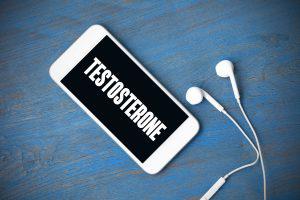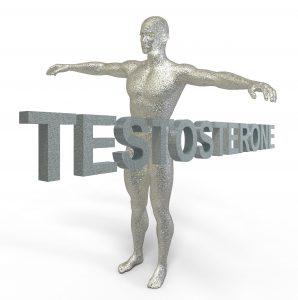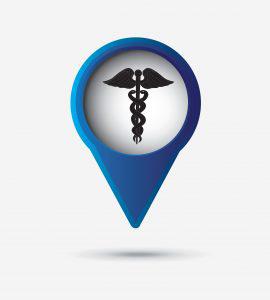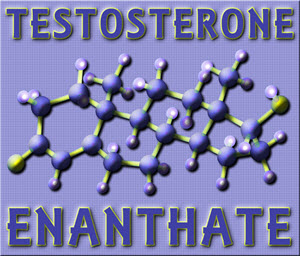Testosterone: How Much Do You Really Know About This Potent Hormone?
Keep Reading and Find Out What You May Not Know
 The dictionary definition of testosterone is “a steroid hormone that stimulates the development of male secondary sexual characteristics, produced mainly in the testes, but also in the ovaries and adrenal cortex.”
The dictionary definition of testosterone is “a steroid hormone that stimulates the development of male secondary sexual characteristics, produced mainly in the testes, but also in the ovaries and adrenal cortex.”
That definition is accurate. But testosterone is more than what is mentioned...way more. Testosterone is genuinely the hormone "king," an almost magical substance responsible for male characteristics of potency, libido, energy, and all-around vibrant health.
Video Link: https://vimeo.com/289153253
Video Download: Click Here To Download Video
Video Stream: Click Here To Stream Video
But There is Confusion About Testosterone
Most people are aware of the benefits of testosterone, as well as its importance in maintaining men’s health. But there are facts about testosterone that many folks are unaware of. For example, did you know…
- Testosterone is not only found in men. That’s right. Women also have a small amount of testosterone in their ovaries.
- Low Testosterone (“Low-T”) has several names: Andropause, Male Menopause, and Late-onset Hypogonadism. Whatever it is called, low testosterone produces several adverse health consequences.
- Women, as well as men, suffer from the effects of low testosterone. But menopause is not responsible for this decline in women. In both genders the real culprit is aging.
- The brain, not the sex organs, controls testosterone production. It’s true that testosterone is one of the hormones that stimulate sexual function in
 both men and women. However, it is the hypothalamus and pituitary glands that initiate the production of testosterone.
both men and women. However, it is the hypothalamus and pituitary glands that initiate the production of testosterone. - Obesity is directly linked to low testosterone. Several studies have concluded that close to 40% of middle-age, obese men suffer from Low-T. This is a “chicken-vs-egg” issue: are these men fat as a result of less testosterone, or are they suffering from the wretched Low-T condition because they are overweight? Obviously, losing weight through proper nutrition and exercise will help boost testosterone levels.
- A consequence of plummeting testosterone levels can also open the door for an unwelcome guest: diabetes. Why? Because testosterone enables the body to control blood sugar levels in response to insulin. Remember this simple equation: Low-T = insulin resistance. This is another “chicken-vs-egg” question: does diabetes lower testosterone or does Low-T cause diabetes? Regardless, the connection between these two unfortunate afflictions is something you need to be aware of.
- A loss of testosterone could result in men having little or no interest in sex. Natural aging often lowers a man’s interest in sex. This decline may be due in part to the natural loss of testosterone as a man ages. However, having no interest in sex is not normal, and might be a direct result of Low-T.
- Low testosterone does not cause baldness. Testosterone creates the appearance of facial hair in teenage boys and continues to affect hair growth as boys turn into men. But while Low-T may cause the disappearance of hair throughout the body, it does not change baldness. Genetics is the offender when men’s hair begins its vanishing act.
- Alcohol lowers testosterone. In spite of the reputation of the manly, two-fisted drinker, excess alcohol wreaks havoc on a man’s testosterone levels.
 Here’s why. Testosterone is produced in the testicles, and drinking is harmful to the testicles. Alcohol can inhibit the secretion of many different hormones that play a crucial role in a man’s fertility and sexual function. Need proof? Consider this. Gynecomastia (enlarged breasts in men) is a common problem in men who drink excessively, as is shrunken testicles. These conditions are a result of alcohol converting testosterone into the female hormone estrogen. So much for the manly, two-fisted drinker!
Here’s why. Testosterone is produced in the testicles, and drinking is harmful to the testicles. Alcohol can inhibit the secretion of many different hormones that play a crucial role in a man’s fertility and sexual function. Need proof? Consider this. Gynecomastia (enlarged breasts in men) is a common problem in men who drink excessively, as is shrunken testicles. These conditions are a result of alcohol converting testosterone into the female hormone estrogen. So much for the manly, two-fisted drinker! - There are treatments for low testosterone. All-too-often, far too many men AND their physicians attribute the piecemeal departure of their manhood as natural aging. “That’s just the way it is; deal with it” is heard by men with depressing frequency. The problem with that diagnosis is that it’s not true. There are treatments to relieve the symptoms of low testosterone. Keep reading and discover how you can benefit from the most cutting-edge methods of restoring your manhood.
Why You Need Testosterone
Teenage boys experience an explosion of testosterone in their adolescent years. Testosterone is responsible for the lower, deeper voice change, the appearance of facial hair, bigger and stronger muscles, the ability to eat whatever and whenever, and a raging libido.
The party of the wild, surging hormones from your teenage years cannot go on forever. Around age thirty men start to lose testosterone at approximately 10% per decade.
By your 40s or 50s, the symptoms of aging are becoming louder and louder...too loud to ignore. In short, your manliness begins to sail away like ships slowly vanishing over the horizon.
Sadly, when men begin to feel the full fury of their loss of testosterone, they may not consider receiving treatment.
All-too-often their symptoms are brushed aside with comments like “you're just getting old” or “everyone feels this way, just deal with it” or other similar, depressing refrains.
However, you do have options. You don’t have to continue to suffer in silent misery. But before receiving any treatment, you must make sure that a loss of testosterone is the problem. Here’s how to figure it out.
You Can’t Measure Your Testosterone Levels by the Way You Feel
Here are a few of the signs and symptoms of low testosterone:
- Muscle weakness
- Chronic fatigue
- Brittle, weak bones
- Joint aches and pains
- Increasing lack of flexibility
- Depression
- Brain fog and poor memory
- Dry, whithering, wrinkled skin
- Sluggish wound healing
- Insomnia
- Diminished sex drive and impotence
- Mood swings
- Hot flashes
The list of nightmares brought on by the loss of testosterone goes on and on, seemingly without end. The problem is that these are the same symptoms of aging.
Why You Need to Consult with a Medical Professional
What this difference between aging and Low-T means is this: you can’t determine you are suffering from low testosterone merely by how you feel.
If you are  experiencing three or more of the symptoms mentioned above, it is vital that you have a blood test which can measure your testosterone level.
experiencing three or more of the symptoms mentioned above, it is vital that you have a blood test which can measure your testosterone level.
Then and only then will your doctor make a diagnosis and you and your doctor will determine if you are a candidate for testosterone replacement therapy.
Remember this: the importance of testosterone to men cannot be overstated. It is the master hormone, the do-all, be-all, end-all key to masculinity. It is almost as important to men as food, water, and oxygen.
Testosterone represents boldness, confidence, strength, intelligence and excellent health. Don’t let your testosterone evaporate. Do something about it!
Anti-Aging science is progressing at a rapid pace. We may not become immortal, but we don't have to suffer and collapse decades before our time.
Testosterone Replacement Therapy is the ticket to grabbing the aging bull by the horns and smashing it to the ground.
Contact Us Today For A Free Consultation

- Common Chemicals Found in Plastic May Lower Testosterone Levels [Last Updated On: January 18th, 2024] [Originally Added On: September 29th, 2020]
- There is No “Testosterone Controversy” [Last Updated On: June 30th, 2024] [Originally Added On: September 30th, 2020]
- Is Your Leadership Ability Determined by Your Testosterone and Cortisol Levels? [Last Updated On: January 31st, 2024] [Originally Added On: October 1st, 2020]
- Recent Study Confirms: Testosterone DOES NOT Increase Heart Attack Risk! [Last Updated On: February 10th, 2024] [Originally Added On: October 5th, 2020]
- What You Need to Know About Testosterone Esters [Last Updated On: March 20th, 2024] [Originally Added On: October 7th, 2020]
- Research Makes a Case for Testosterone Replacement Therapy (TRT) [Last Updated On: December 21st, 2023] [Originally Added On: October 8th, 2020]
- Possible Health Benefits of Testosterone HRT (TRT) [Last Updated On: December 25th, 2023] [Originally Added On: November 20th, 2020]
- Testosterone Facts to Consider When Deciding on Testosterone Replacement Therapy [Last Updated On: April 6th, 2024] [Originally Added On: November 21st, 2020]
- Diabetic Men with Low Testosterone Run Higher Risk of Developing Atherosclerosis [Last Updated On: February 9th, 2024] [Originally Added On: November 22nd, 2020]
- Things You Might Not Have Known About Testosterone [Last Updated On: January 26th, 2024] [Originally Added On: November 23rd, 2020]
- Testosterone Propionate [Last Updated On: February 14th, 2022] [Originally Added On: January 17th, 2022]
Word Count: 1151





















